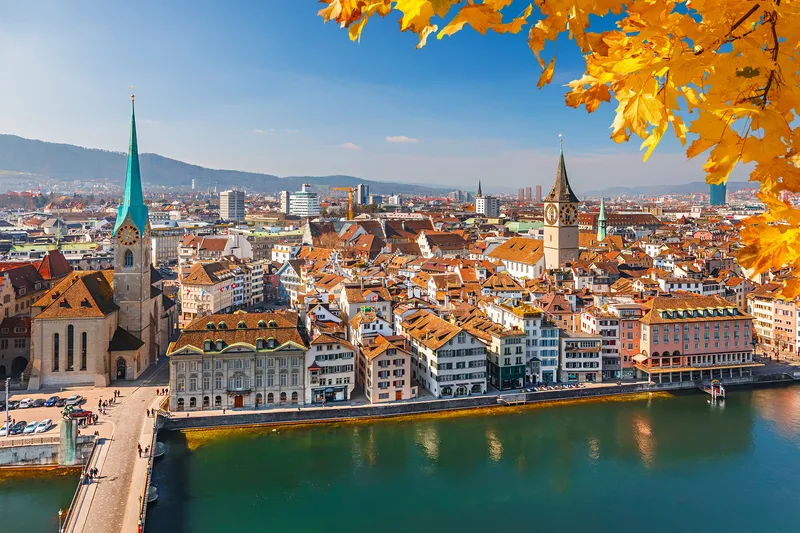
Asia and Europe dominate the IMD Smart City Index 2023, produced by The Smart City Observatory (SCO).
The Index combines data and survey responses from 20,000 inhabitants in 141 cities worldwide, looking at factors such as how technology has been deployed to improve public transport, how many green spaces there are and the state of air pollution.
"Ease of transportation" is among the key factors in deciding quality of life in the Index.
Apart from Abu Dhabi and Dubai in United Arab Emirates, the top 20 cities are either in Europe or in Asia-Pacific, with Zurich in Switzerland, Oslo in Norway and Australia's capital Canberra taking the top three slots.
"The absence of American or African cities is notable," says the SCO's report, which highlights "openness, innovation, inclusivity and sustainability".
Canberra is a new entrant, but Zurich and Oslo were also numbers one and two the last time the Index was produced in 2021 - and they are among the six so-called 'super-champions' which "have been continuously improving their performance since 2019".
The others are Singapore, Beijing, Seoul and Hong Kong.
The highest-ranked US city is New York (22) with Cairo (108) the leading African city, while Medellin (118) tops the South American list.
"The 2023 rankings reflect a growing interest and higher levels of concern about the quality of life that residents are expecting to enjoy in their respective cities," the report suggests.
"Size is often a handicap rather than an advantage in this regard. This explains why most large metropolises such as Boston (34th) or Paris (46th) rank relatively low in the index, in spite of remarkable progress in a number of key areas such as sustainability and mobility."
“We are delighted to be able to convey citizens’ real experience of living where they do thanks to having recently acquired city-level data from the Global Data Lab’s Human Development Index, an improvement on the country-level data we used in previous editions,” said SCO director Bruno Lanvin.
The 2023 findings demonstrate the increasing “smartness” of second-tier cities such as Montreal, Denver, Lausanne, Bilbao, Bengaluru, Brisbane, Busan, Sydney, Hong Kong and Shanghai, SCO insists.
“In these times of great geopolitical power shifts, cities and their leaders are becoming more visible on the international stage, and citizens are increasingly valuing inclusion and diversity in the places they choose to live,” Lanvin said.
This year, the Seoul-based World Smart Sustainable Cities Organization (WeGO) is partnering with IMD to formally recognise efforts in smart city development by awarding a new prize, the Seoul Smart City Prize, in September.
It is "designed to promote an innovative and inclusive smart city model that looks after underprivileged groups in the era of the Fourth Industrial Revolution".
SCO is part of the IMD World Competitiveness Center.









